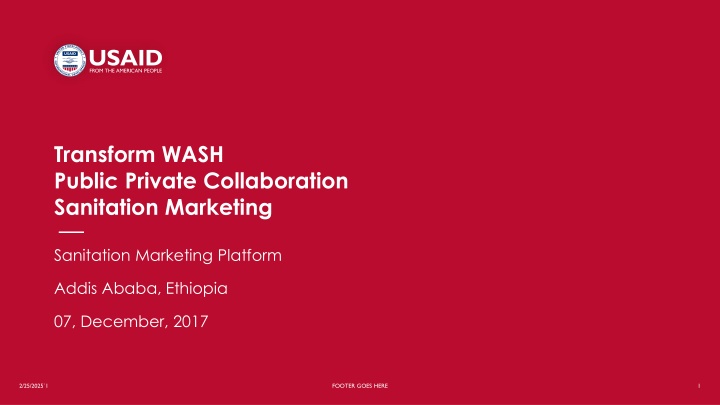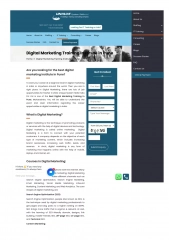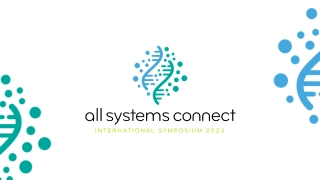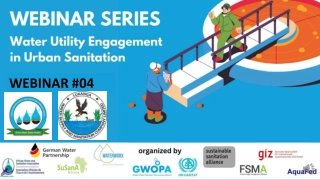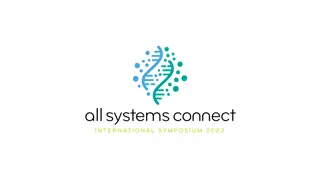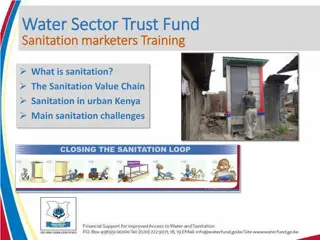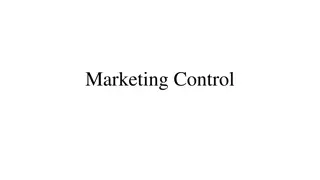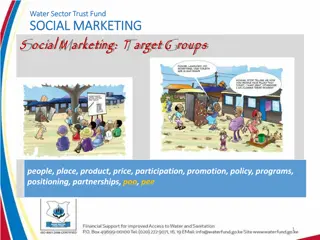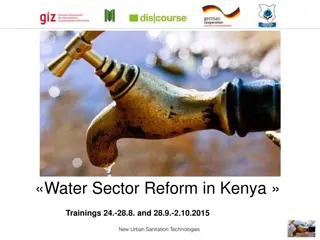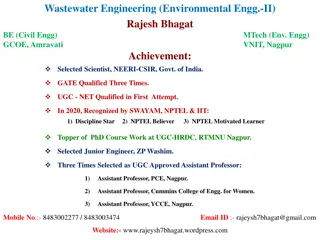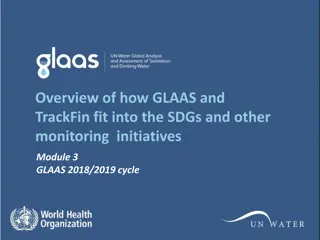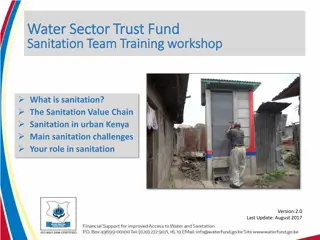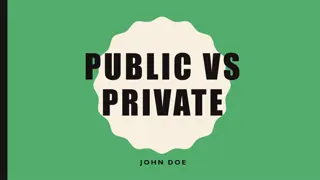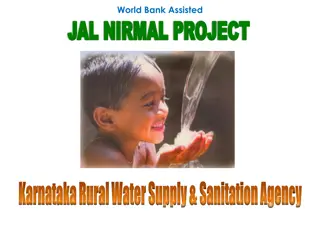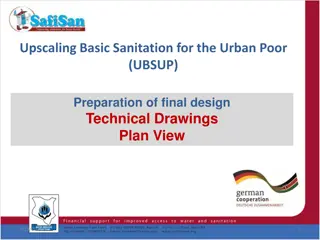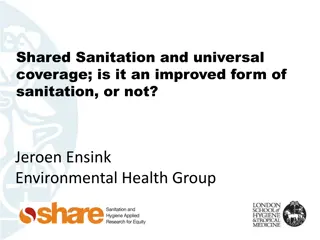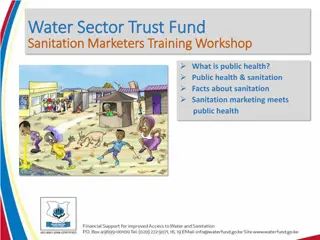Transforming Public-Private Collaboration in Sanitation Marketing
The study delves into public-private collaboration beyond traditional PPP models in Addis Ababa, Ethiopia. It explores international experiences in sanitation marketing, challenges and opportunities in the region, and the roles of both sectors in the WASH domain. Focus is on enhancing sanitation markets through innovative practices and frameworks.
Download Presentation

Please find below an Image/Link to download the presentation.
The content on the website is provided AS IS for your information and personal use only. It may not be sold, licensed, or shared on other websites without obtaining consent from the author.If you encounter any issues during the download, it is possible that the publisher has removed the file from their server.
You are allowed to download the files provided on this website for personal or commercial use, subject to the condition that they are used lawfully. All files are the property of their respective owners.
The content on the website is provided AS IS for your information and personal use only. It may not be sold, licensed, or shared on other websites without obtaining consent from the author.
E N D
Presentation Transcript
Transform WASH Public Private Collaboration Sanitation Marketing Sanitation Marketing Platform Addis Ababa, Ethiopia 07, December, 2017 2/25/2025`1 FOOTER GOES HERE 1
Introduction The study is about public private collaboration going beyond PPP. Public Private Partnership is based on a contractual arrangement Mapping international experiences on sanitation marketing Framework for public private collaboration Looking in to challenges and opportunities in Ethiopia 2
Public Private Collaboration in WASH WASH sector highly public dominated Public sector financier, owner and operator Private Sector provides services in study and design, construction, supply of goods, waste collection services and maintenance Banks and MFIs limited role in fund 3
PUBLIC SECTOR Goals and activities to enhance sanitation markets PRIVATE SECTOR Desired Goals Goals and activities to enhance sanitation markets Strengthening demand Awareness raising and product promotion Public sector as customer of products and or services Increasing customer purchasing power (access to finance) Strengthening demand Product promotion and social marketing Enhanced product offerings Increased demand for sanitation products and services Strengthening the enabling environment Political economic-environment Regulatory framework Institutional framework including bureaucracy Strengthening the enabling environment Business associations to enhance communication, collaboration, partnering and learning with public sector Lobbying with public sector Complying with rules and regulations Sustainable sanitation provision Strengthening the supply chain Reduced business costs (investments, working capital & operational costs) Research and development Business development (incl. access to finance) Strengthening the supply chain and tapping into demand Research and development (incl. market research) Product development (incl. diversification and quality aspects) Convenient sales outlets Improved supply of desirable & affordable sanitation products and services
Global scan-Activities and countries x = example of model exists x = no example, but challenge discussed Banglade sh Cambodi a Guatema la Nicaragu a Bolivia Honduras India Peru Malawi Rwanda Uganda Awareness and product promotion Strengthening Public Public sector as client demand Increasing client purchasing power Private Product promotion and social marketing Enhance product offerings Regulatory framework x Bureaucracy Public Strengthening enabling Physical & organisational infrastructure x Political economic environment environment Governance Associations to facilitate communication and feedback to public Private Co-learning with public Lobbying and partnering with public Complying with rules and regulations Reduced business costs Public Improving supply Research and development Business development support chain Research and development Private Product development Convenient selling outlets
What we can learn from other countries 1. Sanitation Fairs in Peru: Regional governments sponsored sanitation fairs for local entrepreneurs to exhibit sanitation products and services for low-income families 2. Public Sector as a Client in Rwanda: The public Vision 2020 program in Rwanda is constructing toilets for very poor households, while trying to avoid disrupting markets. 3. Business friendly costing, Malawi: City cut the fee for dumping fecal waste by two thirds allowing businesses to cut their own price 6
Lessons from other countries 4. Public-private contract, India: Public in charge of development and major repairs of infrastructure, private for operating and administering latrines 5. Increase purchasing power, Nicaragua: Local government pay part of the cost to suppliers and HH pay the rest 6. Public-private dialogue, Bolivia/Malawi: Platform for dialogue between public, private sector and consumers to build common ground and detect problems early 7
Ethiopian Context Policy and Regulatory Framework: No sanitation policy addressed in sector policies, No clear regulatory framework Limitations in the Program (OWNP): Role of private sector not clearly discussed Access to Finance: Commercial Banks lending practice challenging, MFI limited capital and not focus credit product 8
Ethiopian Context WASH behaviour and awareness: HEP main instrument and more effective in rural than urban settings (complexity) Household financial capacity: Sanitation not considered as priority expenditure item (market and income) Business Environment: More encouraging for priority sectors Product development: Limited public investment 9
How to strengthen sanitation markets-Lessons for Ethiopia Strengthening Demand Raise awareness and promote products- HEW facilitate products and services and link interested households to local businesses Priming the market- public sector facilitate opportunities by displaying latest models and innovations at strategic locations Putting money in to HH pockets- Government encourage MFI to introduce credit for sanitation products 10
Strengthening Enabling Environment Regulate the sector through guiding sanitation marketing initiatives- Create coherence and integration between the various initiatives Organize the system to serve the SM: Less bureaucracy, better coordination and targeted capacity building Regulating supply and suppliers: Licensing, construction standards and technical guidelines 11
Strengthening Supply Chain Reducing costs to enhance sustainability: Affordable productsthroughpatents, contracts, grants, market intelligence Supporting growth: Efficient licensing, simplifying certification and accreditation processes, access to finance Diversifying to increase market share: Consumers preferences and purchasing powers Business location close to consumers: Move out from large cities and get closer to rural consumers 12
